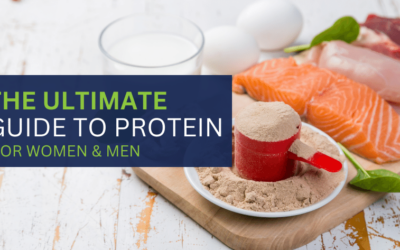What Are These Ketones Everyone Is Talking About?
If you’ve read some of my past posts, you’ve probably already figured out that on the Ketogenic diet you burn Fat in the form of Ketones. But what are these magical Ketones that your body can use for fuel while helping you Lose FAT, Think Clearer, and Reduce Inflammation?
Technically, ketones are a group of water-soluble organic molecules with a very specific chemical structure. However, when people talk about ketones for Nutritional Ketosis purposes on the Ketogenic diet, they’re usually referring to a few specific ketones produced by our body as fuel (and these are technically called ketone bodies).
We produce 3 different ketone bodies (and for ease we’ll just call them ketones):
1. Acetoacetate (AcAc) – found mostly in your urine.
2. Beta-hydroxybutyrate (BHB) – found mostly in your blood (it’s technically not a ketone because it has a different chemical structure, but it’s commonly referred to as a ketone). This is what is in the KETO Shake that quickly pushes you deeper into Ketosis.
3. Acetone – found mostly in your breath.
And when we talk about measuring ketone levels, we’re typically talking about measuring levels of one of these three. That’s why there are 3 types of ketone meters – one for measuring ketones in your urine, one for your blood, and one for your breath.
Another definition that’s really helpful to know about these ketones is the difference between Endogenous and Exogenous ketones:
The ketones that are produced naturally by your body through Fasting, Intermittent Fasting, or through eating a strict Nutritional Ketogenic diet (over 80 percent fat), are called “Endogenous” ketones.
However, you can also take ketone supplements, like KETO, to raise your body’s ketone levels, and those ketones supplements are called “Exogenous” ketones.
How Do You Measure Ketones (and Do You Need to Measure Them)?
Your blood ketone levels are generally considered to provide the most accurate reading of your body’s ketone levels, and therefore, the best indicator of ketosis.
Here are the 3 methods of measuring your ketone levels:
1. Urine Strips (Ketostix). You basically pee on these or dip them into some of your urine that you collect. The strip will change color in proportion to levels of Acetoacetate (AcAc) in your urine. If you’re just getting started on a Ketogenic diet, then these reasonably cheap strips can offer you a quick and easy indicator of whether your Ketogenic diet is going in the right direction. However, most people find them inaccurate because you could be using up the ketones in the system and not be eliminating them through urine.
2. Blood Ketone Meters (along with ketone measuring strips). This is very similar to the blood glucose meters (and in fact, they also work as a blood glucose meter if you buy the glucose measuring strips). You prick your finger with a lancet and then use the ketone measuring strips connected to the blood ketone meter to soak up a small drop of blood. The blood ketone meter will then do its thing and give you a blood ketone level reading. The main problem with these is that the ketone measuring strips are extremely expensive (around $3-4 per strip).
3. Breath Ketone Meter (Ketonix). This is a reusable meter that measures ketones in your breath. There’s no prick to draw blood, it charges through a USB plug, and no strips are required. You warm up the meter for a few minutes, blow into the meter for 6-15 seconds, and then it gives you a reading.
Additional Method of Determining Your Ketone Levels without Ketone Meters:
There is a clear link between your Blood Glucose levels and Blood Ketone levels: As your blood glucose levels decrease, your blood ketone levels will increase. However, the exact relationship between these two varies from person to person, so you won’t be able to have an exact ketone measurement based on your glucose measurement. But by taking your blood glucose measurements, you can get a good indicator of what your ketone levels might be.
Do You Really Need to Measure Your Ketone Levels on a Ketogenic Diet?
We know all that all this testing equipment is expensive as well as a hassle to use. So, do you really need it?
The simple answer is no, you definitely don’t need to know your exact ketone levels in order to enjoy the benefits of a ketogenic diet.
However, different people will require different levels of carbohydrates and proteins in order to get into Nutritional Ketosis; knowing how your ketone levels change over time will give you a good idea of whether you’re on the right track or if you need to tweak what you’re eating.
Tracking your ketone levels can also be important for troubleshooting your Keto diet – e.g., if your weight-loss stalls or if your energy plummets.
But regardless, don’t obsess about your ketone levels – knowing your ketone levels is supposed to help you tweak your keto diet, not stress you out!
What’s The Optimal Ketone Level For You?
As you might have suspected, there isn’t a one-size fits all answer to this question. Part of the answer depends on what your goals are.
The optimal ketone levels you’ll want to achieve will likely be different depending on whether you’re looking to Lose Weight, get improved Mental Clarity, improve your Athletic Performance, or to help prevent illnesses like cancer. And the numbers may also vary depending on your body’s current Insulin Resistance (i.e. if you have type 2 diabetes or if you’re pre-diabetic then your optimal levels at the beginning may also differ from someone who has healthy levels of blood glucose).
Considering all of those different factors, below are some ranges proposed by different Ketogenic Diet Experts.
*NOTE – Again, these ketone levels are for optimal nutritional ketosis and should NOT be used if you’re a Type 1 diabetic!
Jeff Volek and Stephen Phinney
Most people have based their optimal ketone numbers on the recommendations in The Art and Science of Low Carbohydrate Performance: “‘Light nutritional ketosis’ is between 0.5mmol/L and 1.0mmol/L and ‘optimal ketosis’ is between 1.0mmol/L and 3.0mmol/L.”
Tommy Wood
“You want a healthy ketone-based metabolism, but the absolute numbers don’t really matter that much. Your absolute ketone levels tell you nothing about how well you are a) making ketones b) using ketones, or c) retaining ketones (i.e. preventing wasting via the urine). The number you measure is just a balance of all three. So you could be running purely on ketones but using everything you make, and end up with “low” levels – Sami Inkenen is a good example. There’s no such thing as an optimal recommendation for everyone because we just don’t know how to measure or understand all those processes as much as we’d like to think we do!”
Dr. Thomas Seyfried
Dr. Thomas Seyfried, a professor of biology at Boston College who researches cancer and the uses of a Ketogenic Diet in curing and preventing cancer, states in the The Complete Guide to Fasting book: “The key to therapy is prolonged therapeutic ketosis (blood ketones in the range of 3–6mM), together with reduced blood glucose levels (3–4 mM).”
Dominic D’Agostino
Dominic D’Agostino is an assistant professor in University of South Florida and his lab researches how a ketogenic diet can aid neurological diseases. Dominic stated: “What’s the optimal level of ketones? I think anecdotally and from the data that I’ve seen, I think somewhere between 1.5 and 3 is optimal.”
Luis Villasenor
Luis from Ketogains.com who helps many bodybuilders on a Ketogenic Diet has repeatedly suggested that search for high ketone levels is not always beneficial. He regularly tells people: “Don’t chase ketones; chase results.”
Marty Kendall
Marty, an engineer who runs the website and Facebook group, Optimising Nutrition, states that: “If your aim is exercise performance or fat loss then ketones between 0.5mmol/L and 1.3mmol/L might be all you need to aim for. I also think loading up on dietary fat at the expense of getting adequate protein, vitamins and minerals may be counterproductive in the long term.”
Marty also points out that not everyone on a Ketogenic Diet will get high ketone levels – for example, Sami Inkenen only had around 0.6mmol/L when he was rowing from the US to Hawaii on an 80% fat diet.
Optimal Ketone Levels
Based on the current expert opinions above, below is what you might want to see your ketone levels at depending on your goals.
Weight-loss: above 0.5mmol/L
Improved athletic performance: above 0.5mmol/L
Improved mental performance: 1.5-3mmol/L
Therapeutic (e.g., to prevent or cure certain illnesses): 3-6mmol/L
Again, these are general ranges and if yours doesn’t fall within the range, it’s not a definitive indicator that you’re doing something wrong, but it is a helpful guide to ensure you think about tweaking and testing your keto diet to see if something can be improved.
In Conclusion…
Your level of optimal Ketones will vary between individuals, depending on activity level, body fat percentage, level of Insulin Sensitivity, and Hormones. Don’t get “stuck” focusing on the number. Focus on how you feel mentally, physically and the cumulative results you are experiencing.
Sara Banta
Sara Banta is a Stanford University Graduate with a Degree in Economics and Psychology, and a certified Natural Supplement Expert & Graduate of the Institute for Integrative Nutrition. Sara is the Founder of Accelerated Health Products and host of the health & wellness podcast, Accelerated Health Radio.









